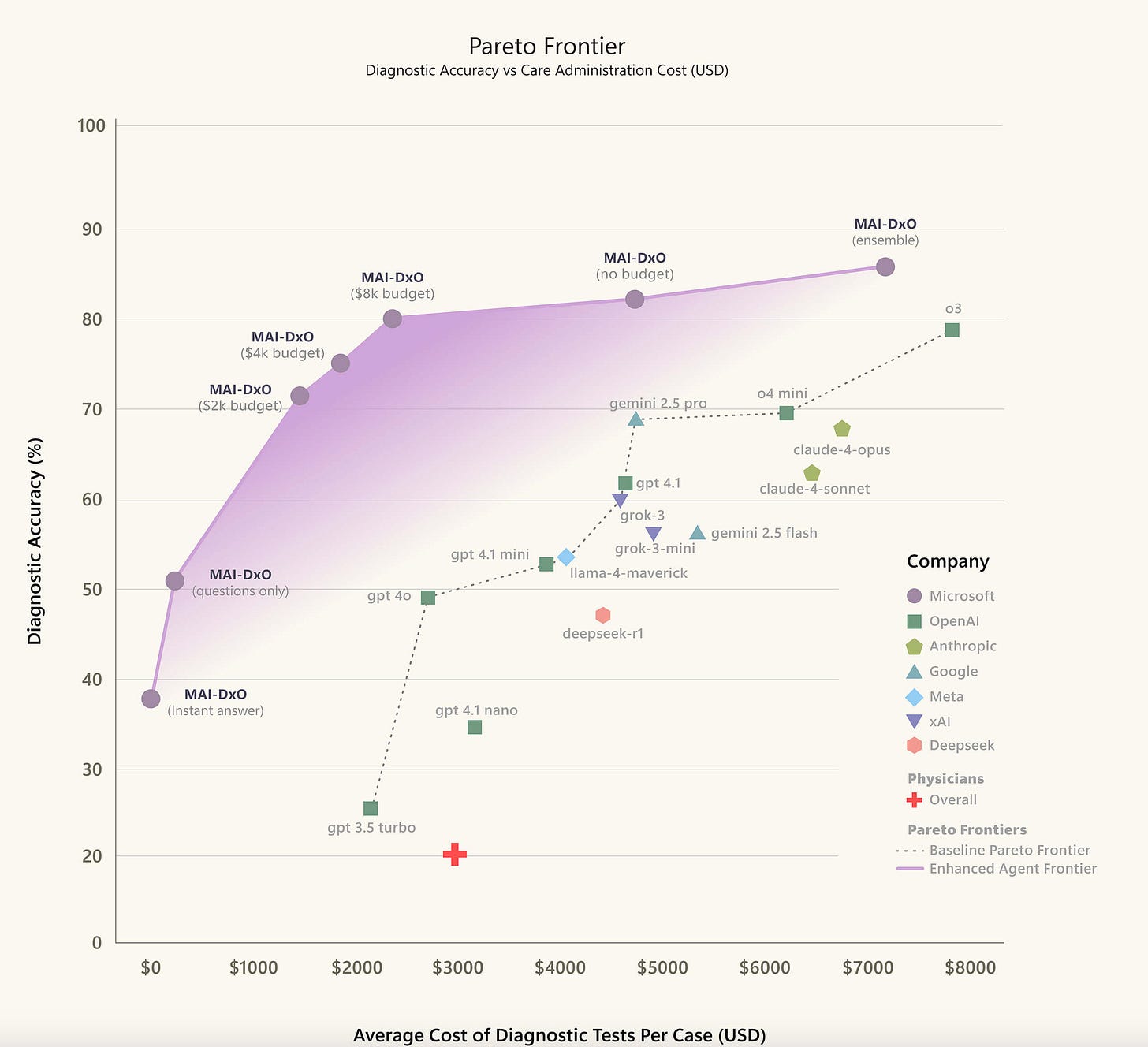We are Teaching AIs, Not Humans, to Debate
And now the AIs are starting to become smarter than us
The world’s leading AI companies are investing billions to teach robots how to debate to strengthen their reasoning skills and the quality and accuracy of their answers.
It’s paying off dramatically in medicine.
Read more.
This is all happening while
*….Funding for public school debate teams is being reduced (private schools are increasing investment)
*….Many educational institutions are doubling down on students writing essays (including in blue books!) rather than supporting instructional design that includes debate.
*….Schools continue to struggle with complicated AI adaptation strategies while the answer to the instructional exigence created by AI is actually hundreds of years old.
Sharper critical‑thinking “muscles” – Live clash forces students to test evidence, spot logical gaps, and refine arguments—skills automation can’t replace.
Human‑AI collaboration practice – Prepping for debates with AI tools (research, drafting, simulations) teaches students how to question, verify, and improve AI‑generated content rather than accept it blindly.
Rapid idea synthesis & communication – Debate’s strict time limits train learners to distill complex information into clear, persuasive messages—vital when superintelligence floods us with data.
Ethical decision‑making under pressure – Weighing impacts and values in real time helps students develop principled judgment, a guardrail against blindly pursuing AI‑optimized “efficiency.”
Resilience to misinformation – Cross‑examination habits—asking “how do you know?” and “what’s the context?”—build immunity to deepfakes and algorithmic manipulation.
Collaborative creativity – Team formats model constructive disagreement and iterative idea‑building, the same dynamics diverse human‑AI teams will need to solve novel problems.
Civic empowerment – Arguing both sides of an issue fosters open‑minded citizens capable of engaging in nuanced policy debates about AI governance and societal impacts.
Metacognitive self‑awareness – Post-debate reflection on strategy and bias teaches students to monitor their own thinking—essential for supervising ever‑more capable systems.
The mathematics of advanced AI is super difficult. Instructional design to prepare students for the AI world is not difficult. Adding debate to your (hopefully reimagined) “classrooms” is not difficult.
Schools need debate. And they need debate more than 1,000 more AI guidance documents, more than strange AI “frameworks,” more than magical schools, and more than Blue books.
Want to learn more about debate? Hit reply and/or check out our forthcoming book on AI Pluralism and Debate (fall 2025). As we argue, pluralistic approaches will help students learn, contribute positively to the design of cities in an AI world, help us interpret what AI is actually “thinking,” and make a sizable contribution to AI safety. It’s an approach we ground in some of the best ideas in philosophy and history.








